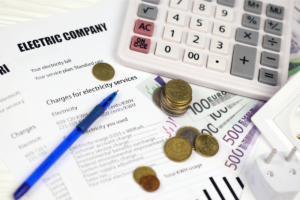A Home Buyer’s Guide to Closing Costs
A Home Buyer’s Guide to Closing Costs
It’s a very special event when someone buys a house. However, a proper budget, planning, and guidance are required to purchase a home. While buying a home, surely you’ve heard about closing costs but don’t know exactly? These costs stay a mystery for the buyers until the end, and there is a high possibility that they can be forgotten amidst everything. That’s why, In this article, we’ve covered everything about closing costs, charges for different areas, and all the necessary details you need to know to help you buy a home.
Without any further delay, Let’s begin!
What do you understand about closing costs?
Many other fees are associated with a house purchase, excluding the down payment costs and obvious Mortgage. Closing agreements are the final step before you get the keys to your house in your hand. These are processing fees paid to the lender in exchange for the loan set by the lender. These costs come into effect upon the closure of the loan. These cover various fees, including home inspection, appraisal, etc. They are classified based on their nature into two categories: one is described as recurring costs, while the other is non-recurring ones.
What do we understand from the term Non-Recurring costs?
The charges are associated with loan request closure and with processing.
What do we understand from the term Recurring costs?
On the contrary, the recurring ones are the ones that always appear with the ownership of your home, like Property taxes and Homeowners ownership.
Things to remember during the payment of closing costs
- One needs to be cautious when preparing to pay the closing costs and read the paperwork carefully for the same, too.
- Apart from that, the home buyer will receive many documents to sign, but this can be eased if you keep all the information to your Real Estate Agent beforehand.
- When you give the application for your house loan, the lender must provide a booklet explaining the closing cost estimation and the requirements for all the documents needed to submit.
- Closing costs are incurred through gifts of equity, too.
Who has to pay the closing cost?
One sees buyers paying the closing cost, but in reality, both the seller and buyer are responsible for paying off the charges. Although these fees have space for negotiation, a portion of these fees is paid by a seller in a few cases, called seller concessions. These concessions can be extremely helpful, especially during the closure. However, the amount paid by the seller has its limitations too. Below are the simplified loans for your convenience.
- Conventional loans (for primary residences and second homes down payment, respectively)
a) Down payment for primary residences
-
- 25% or more: 9%
- 10-24.99%: 6%
- less than 10%: 3%
b) Down payment for second homes
-
- 25% or more: 9%
- 10-24.99%: 6%
- FHA Loans: Based on the lesser purchase price and appraised value, the contribution limit is 6%
- VA Loans: Towards the required VA funding fee and escrow account, up to 4% of the appraised and purchase value can go.
What is the amount of closing cost?
 On average, buyers expect to pay between 2 and 5% of closing costs.
On average, buyers expect to pay between 2 and 5% of closing costs.
According to the law, a loan estimation needs to be made by the lenders regarding the application of mortgage to the borrowers within three days to the buyer.
These estimates are expected to lay down the estimation considered for interest rate, expectations regarding closing costs, and payment that needs to be fulfilled monthly.
The presented assessments should be very close to the final charges that will be summarised during the closing, even though they are considered subject to variation.
What is the closing cost for a buyer?
The topics describing the closing costs, who incur them, and how much is expected are covered. So now, let’s move forward with the most common fees to be paid by the buyer during the closing.
Property-Related costs
- Home Inspection Fee: On average, $300 to 500 is paid under these fees to cover the inspection fees. The typical responsibility for ensuring whether a home is in good condition for the buyer lies in the hands of the lender
- Property Appraisal Fee: On average, this fee ranges from $300 to $400 and covers the cost of having your home appraised by a professional home appraiser and inspected by your lender for authenticity.
- Escrow Fees: This fee varies on average and is paid to the real estate attorney or escrow company and title company as an independent third party to close the transaction.
- Flood Certification: This cost averages $15 to 20 and is required if your choice of home is placed near a flood zone or a floodplain. For this, certification is given by the Federal Emergency Management Agency (FEMA), and documentation done by your lender is required.
- Recording Fee: The average cost varies, but it is a fee charged by the county recording office or your local city to record the sale or purchase of a home.
- Property taxes normally vary on average, and the buyer is responsible for paying them for two months during the closing.
 Loan-related costs
Loan-related costs
- Loan Application Fee: This fee goes up to $200 to 400 on average and covers the processing cost of your loan application, including charges like credit checks from your lender, which can be negotiated.
- Loan Origination Fee: This fee is 0.5 to 1% of the total loan amount and is charged for the lender’s administrative duties associated with evaluating and preparing your loan. These are also referred to as underwriting and include fees like notary fees.
- Assumption fee: These fees, on average, amount to 1% of the loan balance and take over the balance remaining from the seller’s loan.
- Discount Points: This amount is paid additionally and is advised only to be paid if the buyer plans to stay in the home over a longer period. They are paid to reduce the loan’s interest rate and are delivered to the lender.
Insurance-related Costs
- Mortgage Insurance Application Fee: This fee varies according to the lender and covers the application cost related to PMI insurance. This fee is required if the buyer cannot put down 20% on the house, as it gives the lender insurance if the buyer defaults on the loan.
- Upfront Mortgage Insurance: This fee varies over your purchase price from 0.55% to 2.25%, a lump-sum payment that covers the loan’s life or the mortgage insurance premium. If the buyer holds PMI, they will likely complete the first month’s premium income during the closing.
- Homeowner’s Insurance: This fee generally varies and helps cover the cost of damage to your home. The first year’s insurance premium is usually paid upfront at the closing.
Conclusion
The closing period is critical and a step closer to your dream home. The costs devoted to purchasing your home can be a bigger sum. However, one should always inform all the buyers, and they should never be left in the dark. Budgeting 2 to 5% of the buyers’ savings is best to keep it ready during the closing. We hope this article helps you understand closing costs while purchasing a home. If you want guidance from an expert for buying a home, contact Amar Realtor for the best advice on buying a house easily.
To learn more details, let’s talk with Amar REALTOR®
Let’s schedule a meeting to review all your Real Estate goals!
![]()
Please Click to schedule a time on my online calendar at no cost!
https://www.amarrealtor.com/meetingwithamarrealtor/
Contact Amar REALTOR® today for more information about Buying/Selling a Home in the Bay Area!
More Interesting Information about Bay-Area Real Estate
What does a Real Estate Agent do? An in-depth look
Record high: U.S. homeowners have over $27 trillion in home equity
How to Turn Your Home into a Rental Property?
5 Home Buying Secrets Most People Don’t Know About
How to Get the Home You Want AND Appeal to Sellers at the Same Time
The Difference Between Federal Funds Rate and Mortgage Interest Rate
How the Federal Reserve Affects Mortgage Interest Rates
What is the San Francisco Real Estate Market Doing in 2022?
5 Things to Know About Bay-Area ADUs
What You Should Know About CA SB-9
How the Federal Reserve Affects Mortgage Rates
